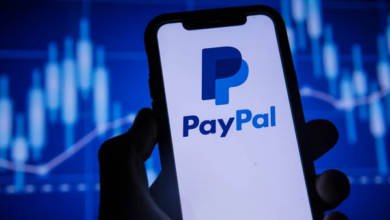
An Intrusion into Privacy in the Digital Age – Phone Tapping
In an era where smartphones are as integral to our lives as food and water, the notion of privacy has evolved into something far more complex than ever before. We store our most intimate secrets, personal conversations, financial details, and professional correspondence in these handheld devices. But what happens when someone taps into this reservoir of information without our consent? Phone tapping, once a tool limited to law enforcement and espionage, is now a widespread concern that raises significant questions about privacy, legality, and technology’s role in our lives.
What is Phone Tapping?
Phone tapping, also known as wiretapping, is the practice of secretly monitoring phone conversations by a third party. This can be done using various methods, such as intercepting signals, accessing call records, or even planting physical devices on the phone or its line. While the act of phone tapping might sound like a plotline from a spy thriller, it is a real and present threat in our digitally connected world.
The Evolution of Phone Tapping
The history of phone tapping dates back to the early 20th century when governments and law enforcement agencies used it as a means of national security and crime prevention. With the advent of modern technology, phone tapping has become more sophisticated. Gone are the days when bulky equipment and physical access to phone lines were necessary. Today, tapping can be done remotely, often without the target even realizing it.
Also Check
With the rise of the internet and mobile phones, tapping has expanded beyond voice calls to include texts, emails, and other forms of digital communication. Modern phone tapping tools can capture not just conversations but also location data, browsing history, and app activity. This shift has made phone tapping a powerful tool not just for law enforcement, but also for cybercriminals, hackers, and even overreaching governments.
Legal and Ethical Concerns
The legality of phone tapping varies significantly across different countries. In many regions, it is permissible only under specific conditions, typically requiring a court order or warrant. For instance, in the United States, the Federal Wiretap Act outlines strict regulations under which phone tapping can occur, typically requiring judicial approval based on probable cause. In other countries, the laws might be more lenient or, conversely, more restrictive.
Ethically, phone tapping is a contentious issue. On one hand, it can be a valuable tool for preventing crime, terrorism, and other threats to public safety. On the other hand, it poses a significant threat to individual privacy. The balance between security and privacy is delicate, and the misuse of phone tapping can lead to severe abuses of power, eroding trust in both government institutions and the technology we rely on.
Risks and Consequences
The risks associated with phone tapping are manifold. For individuals, the exposure of personal information can lead to identity theft, blackmail, and other forms of exploitation. For businesses, the stakes are even higher. Corporate espionage through phone tapping can result in the theft of intellectual property, trade secrets, and other confidential information, leading to significant financial losses.
Moreover, the mere perception that phone tapping is possible can have a chilling effect on free speech. People may become hesitant to communicate openly, fearing that their conversations are being monitored. This can stifle not only personal expression but also the exchange of ideas that is crucial for a healthy society.
How to Protect Yourself
While it’s challenging to completely safeguard against phone tapping, there are steps you can take to minimize the risk:
- Use Encrypted Communication: Apps like Signal and WhatsApp offer end-to-end encryption, making it much harder for third parties to intercept your communications.
- Be Cautious of Public Wi-Fi: Public Wi-Fi networks are often unsecured, making them a prime target for hackers. Avoid conducting sensitive conversations or transactions over public networks.
- Keep Your Software Updated: Regularly updating your phone’s operating system and apps can protect you against known vulnerabilities that hackers might exploit.
- Use Strong Passwords and Two-Factor Authentication: Secure your device and accounts with strong, unique passwords and enable two-factor authentication where possible.
- Be Aware of Your Surroundings: If you suspect your phone is being tapped, consider the possibility that physical access to your device might have been compromised. Keep your phone with you and avoid leaving it unattended.
Phone tapping is a complex issue at the intersection of technology, law, and ethics. As our reliance on digital communication continues to grow, so too does the importance of protecting our privacy. While the debate over the legitimacy and necessity of phone tapping will likely continue, one thing is clear: in the digital age, vigilance is key to safeguarding our personal and professional lives. Understanding the risks and taking proactive measures to protect ourselves is no longer optional—it’s essential.








